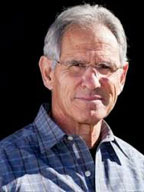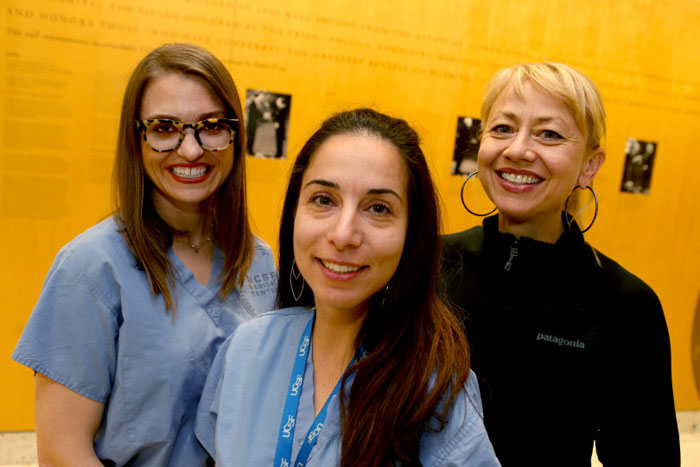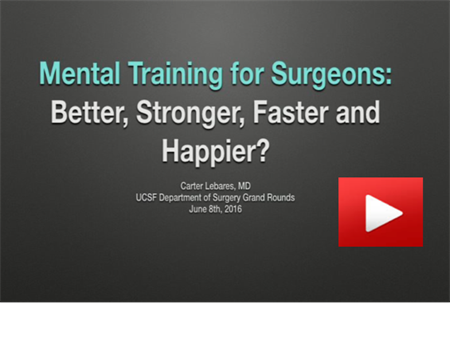
Carter Lebares, M.D.
- Associate Professor of Surgery
- Division of General Surgery
- Director, UCSF Center for Mindfulness in Surgery
Contact Information
513 Parnassus Avenue, U-373
San Francisco, California 94143
(415) 502-5588
[email protected]
Education
University of Minnesota School of Medicine, MD, 2008
Residencies
- University of Minnesota at Minneapolis, 2011
- UCSF Department of Surgery / UCSF Medical Center, 2013
Fellowships
- IRCAD Institute/Strasbourg University, Minimally Invasive Surgery and Surgical Endoscopy, 2015
Clinical Expertise
- Bariatric Surgery
- Complex abdominal wall reconstruction
- Complex hernia repair
- Esophageal Cancer
- Esophageal Motility Disorders
- Gallbladder Disease
- Gastric Cancer
- Gastrointestinal Links
- Hernias
- Hiatal Hernia
- Minimally Invasive Surgery
- Obesity
- Robotic and Surgical Endoscopy
Website Links
- UCSF Center for Mindfulness in Surgery
- Mental Training for Surgeons: Better, Stronger, Faster and Happier?, Carter Lebares, MD, UCSF Department of Surgery Grand Rounds June 8th, 2016, Video and Slides
- Enhanced Stress Resilience Through Mindfulness: Compassion Communication Community, UCSF Faculty in Surgery and Anesthesia, Carter Lebares, MD Elissa Epel, PhD Rick Hecht, MD, 2017
Biography
Carter Lebares, MD is a gastrointestinal surgeon at UCSF Medical Center who specializes in advanced minimally invasive surgery of the gastrointestinal tract, using laparoscopy, robotics and interventional endoscopy. She treats reflux disease, giant paraesophageal and hiatal hernias, achalasia, early esophageal or gastric cancer, esophageal motility disorders, hernias, gallbladder disease and some biliary disease. She also performs emergency general surgery (‘Acute Care Surgery') and complex abdominal wall reconstruction (ventral or incisional hernias).
Dr. Lebares received her medical degree from the University of Minnesota, completed her surgical residency at UCSF, and her fellowship training at the internationally recognized Research Institute Against Digestive Cancer (IRCAD), at Strasbourg University, in France. She is a member of SAGES, the American College of Surgeons, American Women in Surgery and the International Stress and Behavior Society. She co-founded the first integrated (complementary and traditional) medicine teaching clinic in the country, in Minneapolis, Minnesota, in 2007. Dr. Lebares has taken Mindfulness Teacher Training for Physicians through the University of Rochester and is a graduate of the Teaching Scholars Program in Medical Education at UCSF.
Dr. Lebares, is Director of the UCSF Center for Mindfulness in Surgery, has 20 years of personal practice in mindfulness meditation and longstanding research interest in the areas of stress, cognition and resilience. With the help of her exceptional team, she developed the Enhanced Stress Resilience Training curriculum for surgeons.
Dr. Lebares' research interests include mindfulness-based cognitive training in surgery, the impact of chronic stress on cognition and performance, burnout and the surgical ethos, implementation science and behavior change interventions in real-life settings.
Research Overview
Dr. Lebares' research interests include resilience and mindfulness in surgery, mindfulness and nutrition in metabolic syndrome and obesity, the neuroendocrine and cognitive effects of stress on learning and performance, and endoscopic surgery for diseases of the esophagus and stomach.
Clinical Trials
- Study ID: NCT03516877Start Date: Jul 2018Estimated Completion Date: Dec 2020Condition(s): Burnout, Professional
- Study ID: NCT03141190Start Date: Jun 2016Estimated Completion Date: Dec 2017Condition(s): Burnout Syndrome, Surgery, Stress
Publications
MOST RECENT PUBLICATIONS FROM A TOTAL OF 43
- Coopersmith AS, Berler MH, Johnston B, Knutilla L, Edwards AL, Lebares CC, General Surgery Research Collaborative on Resident Wellbeing. Investigating influential factors and mechanisms of surgical resident well-being using social network analysis. Am J Surg. 2023 Sep 06. View in PubMed
- Luton OW, James OP, Mellor K, Eley C, Hopkins L, Robinson DBT, Barlow E, Lebares CC, Lewis WG, Egan RJ, Welsh Surgical Research Initiative (WSRI) Collaborative. Enhanced Stress Resilience Training for UK Surgical Trainees; Effect and Evolution Evaluated. J Surg Educ. 2023 Oct; 80(10):1395-1402. View in PubMed
- Nguyen ET, Berler MH, Gonzales PA, Greenberg AL, Lebares CC, General Surgery Research Collaborative on Resident Wellbeing. Flourishing and the Prioritization of Workplace Elements in General Surgery Residents. J Surg Res. 2023 11; 291:488-495. View in PubMed
- Lebares CC. Invited Commentary: A Tale of 2 Perspectives: The Evolving Culture of Surgery. J Am Coll Surg. 2023 Aug 01; 237(2):290-291. View in PubMed
- Cevallos JR, Gonzales PA, Berler MH, Greenberg AL, Lebares CC, General Surgery Research Collaborative on Resident Wellbeing. Operationalizing the Culture of Burnout and Wellbeing: Multicenter Study of Value Congruence and Flourishing in General Surgery Residency. J Am Coll Surg. 2023 May 31. View in PubMed
- View All Publications
In the News
- Presentmomentmindfulness.com - Staff - March 26, 2020Dr. Carter Lebares joins Present Moment, a podcast and website dedicated to the exploration of contemporary mindfulness in society, to speak about Efficacy of Mindfulness-Based Cognitive Training in Surgery. As secular mindfulness finds more traction in the world, it's also meeting new perspectives on what practice could be. While traditional forms remain of value to those seeking outcomes that are rooted in a religious context, mindfulness is also being studied under the lens of science. Dr. [...]

- UCSF Department of Surgery - Richard Barg - June 19, 2019Faculty members Mary McGrath, M.D. and Carter Lebares, M.D., and general surgery resident Courtney Green, M.D.,MAEd each received the UCSF Excellence and Innovation Award in Graduate Medical Education (2018-19) at the end-of-year GME Celebration on June 17th at the Kalmanovitz Library on the UCSF Parnassus Heights campus. Award recipients have demonstrated a commitment to advancing graduate medical education at UCSF through educational and clinical quality improvement, service excellence, and [...]

- Center for Mindfulness in Surgery - May 30, 2019In this pilot randomized clinical trial of 21 first-year surgery residents led by PI Carter Lebares, MD, director of the UCSF Center for Mindfulness in Surgery, taking a modified mindfulness-based stress reduction class was associated with higher mindfulness, lower stress, better executive function scores, faster motor skills, and unique activation of neural substrates associated with executive control and self-awareness during an emotional regulation task compared with control [...]

- MedicalResearch.com - Medical Research News Staff - May 30, 2019What is the background for this study? Dr. Lebares: This study was inspired by extensive evidence of the effectiveness of mindfulness-based interventions (MBIs) for mitigating stress and enhancing performance in other high-stress populations like police and the military. We know that overwhelming stress is related to burnout and to cognitive errors – two critical issues within surgery, today. This prompted us to tailor and streamline an MBI specifically for surgeons, and to test it in our [...]

- UCSF Center for Mindfulness in Surgery - Richard Barg - February 27, 2018Jon Kabat-Zinn, Ph.D, the universally acclaimed mediation instructor and Professor emeritus at the University of Massachusetts Medical School, recently gave the "Second Annual Ellen Hughes Lectureship" in Herbst Hall at UCSF Mount Zion, "The Key to Clinician Wellbeing through Mindfulness: Embodied Practice, Embodied Presence". Kabat-Zinn is world-renowned for developing the Mindfulness-Based Stress Reduction (MBSR) course, a fixture of integrated medicine, and the founding director of Stress [...]


- UCSF Department of Surgery - Richard Barg - October 31, 2017UCSF News reports on the results of study led by Carter Lebares, M.D., assistant professor and director the UCSF Center for Mindfulness in Surgery, to assess burnout in general surgery residents. An online survey was distributed in September, 2016, to all ACGME-accredited general surgery programs. Stress, anxiety, depression, resilience, mindfulness, and alcohol use were assessed and analyzed for prevalence. The results, published online in the Journal of the American College of Surgeons on [...]

- UCSF Department of Surgery - Richard Barg - August 18, 2017The UCSF Center for Mindfulness in Surgery was recently awarded grants by the Physicians Foundation and UCSF Medical Center "Excellence Fund" to support a study of mindfulness training of faculty in the Departments of Surgery and Anesthesia. The program, led by Carter Lebares, M.D., Principal Investigator on the study, is also funded by the Department of Surgery, which has supported a similar study by Dr. Lebares in surgical interns. Physician burnout, which comprises emotional exhaustion, [...]

- UCSF Department of Surgery - Richard Barg - May 26, 2017Surgeons, from left, Lucy Kornblith, Rita Mukhtar and Carter Lebares pose for a photograph in the lobby of the UCSF Clinical Science Building in San Francisco, Calif., on Wednesday, April 19, 2017. (Courtesy Anda Chu/Bay Area News Group) The April 3, 2017 cover of the New Yorker depicting four women in blue doctors' scrubs over an operating table has gone viral. Reflecting the power of that image, female surgeons throughout the world have been posting group selfie photos of themselves [...]

